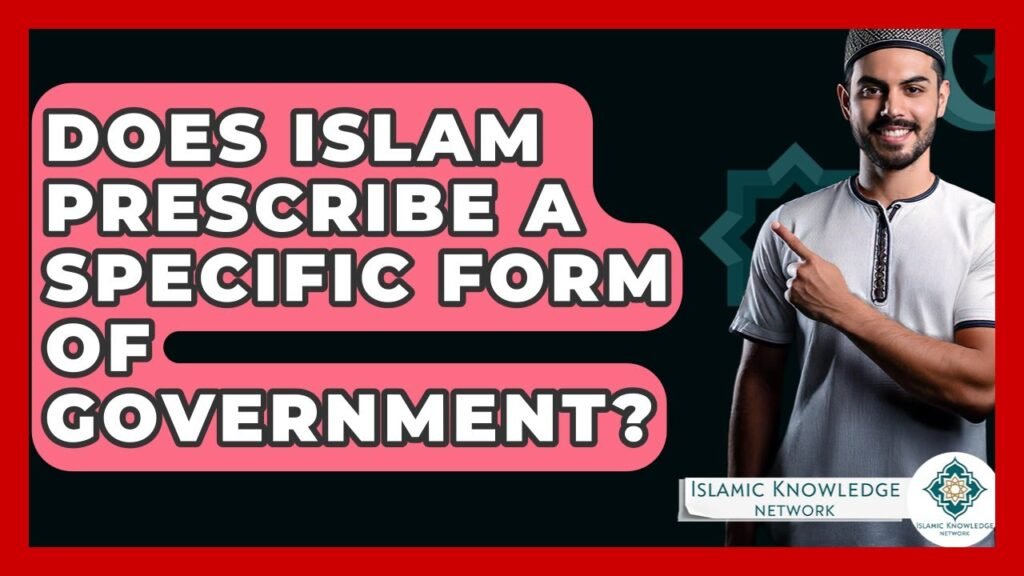Disclaimer:
The content published on this website is provided for general informational purposes only. Articles are generated with the assistance of artificial intelligence and are reviewed periodically; however, accuracy cannot be guaranteed in all cases. Readers are encouraged to verify important information from reliable and authoritative sources before relying on it. The website does not intend to mislead, and any errors found will be corrected when identified.
In exploring the intricate relationship between Islam and governance, a pressing question arises: does Islam prescribe a specific form of government? This inquiry is essential for understanding not only the foundations of Islamic jurisprudence but also the diverse political landscapes across the Muslim world today. As interpretations of Islamic teachings vary, so too do the visions for governance rooted in these principles, leading to a rich tapestry of governmental systems that claim to align with Islamic values.
At Airlink Hajj and Umrah, we recognize the importance of such discussions in the broader context of Islamic teachings and their practical implications. Just as we are committed to providing our readers with comprehensive updates and insights regarding Hajj and Umrah pilgrimage—an essential act of faith for Muslims worldwide—we aim to foster a deeper understanding of the guiding tenets of Islam, including its perspectives on governance. Join us on this enlightening journey as we delve into the historical and contemporary interpretations of Islamic political thought, discussing how it intersects with modern governance and the implications for Muslim societies today. Stay connected for insightful articles on our blog, alongside the latest updates on Hajj and Umrah.
Does Islam Advocate a Specific Government Structure?
Islam does not prescribe a single, universal government structure, but it does emphasize principles that can guide governance. One of the core tenets of Islam is justice, which shapes how Muslims should engage with authority and governance. In many Islamic traditions, the concept of Shura—consultation—is vital, suggesting that leaders should seek counsel from their communities. This principle of collective decision-making can manifest in various governmental forms, allowing for flexibility across different cultures.
Historically, Muslim societies have implemented various governance structures, including caliphates, monarchies, and republics, each shaped by their specific cultural and historical contexts. The Quran and Hadith do not specify a one-size-fits-all government model but provide foundational concepts that advocate for justice, accountability, and the welfare of the community.
As we explore the intersection of faith and governance, it is essential to stay informed about Islamic teachings and their practical applications. For those planning their spiritual journeys, our blog at airlinkhajjandumrah.com offers all the latest updates on Hajj and Umrah, ensuring that you have the most comprehensive information for a fulfilling pilgrimage experience.
FAQ on “Does Islam Advocate a Specific Government Structure?”
-
Does Islam prescribe a specific form of government?
- Islam does not mandate a specific form of government; rather, it emphasizes principles like justice, consultation (Shura), and adherence to the rule of law.
-
What principles guide governance in an Islamic context?
- Key principles include justice, accountability, adherence to Islamic law (Sharia), and the welfare of the community.
-
Is there a historical example of an Islamic government structure?
- The caliphate is a historical example, where leaders governed based on Islamic principles, but this model has varied greatly in practice across different regions and eras.
-
How do interpretations of Islamic governance vary?
- Interpretations vary widely among scholars and communities, influenced by cultural, historical, and social factors, resulting in diverse governance models in Muslim-majority countries.
- Can Islamic principles coexist with democratic systems?
- Many scholars argue that Islamic principles can coexist with democratic practices, especially when governance emphasizes consultation, justice, and the common good.
Mushu, an experienced Saudi Arabia traveler and writer, shares insightful tips and spiritual reflections to enhance Hajj and Umrah journeys for fellow pilgrims. He has been to Makkah and Madina from 2016 to 2023 many times and his posts will reflect this.







